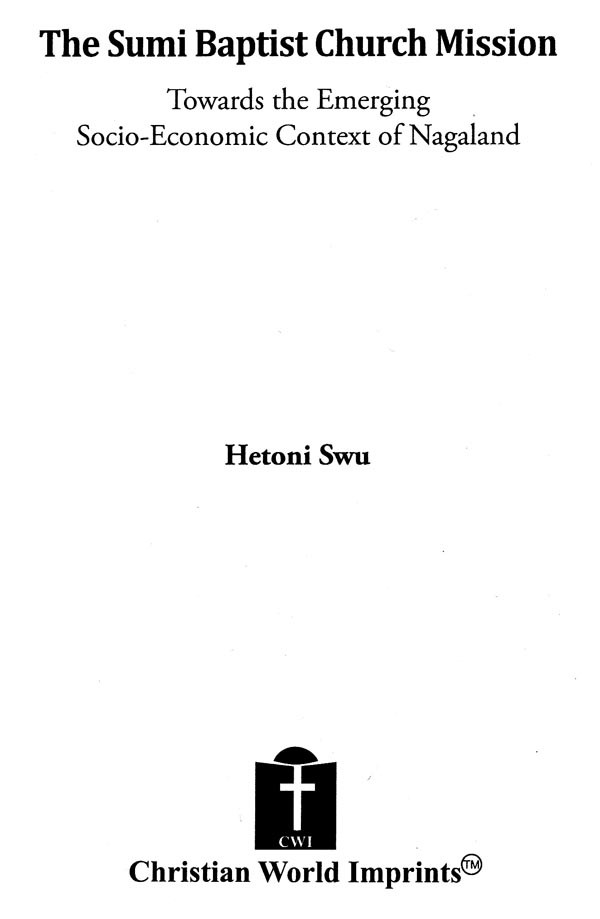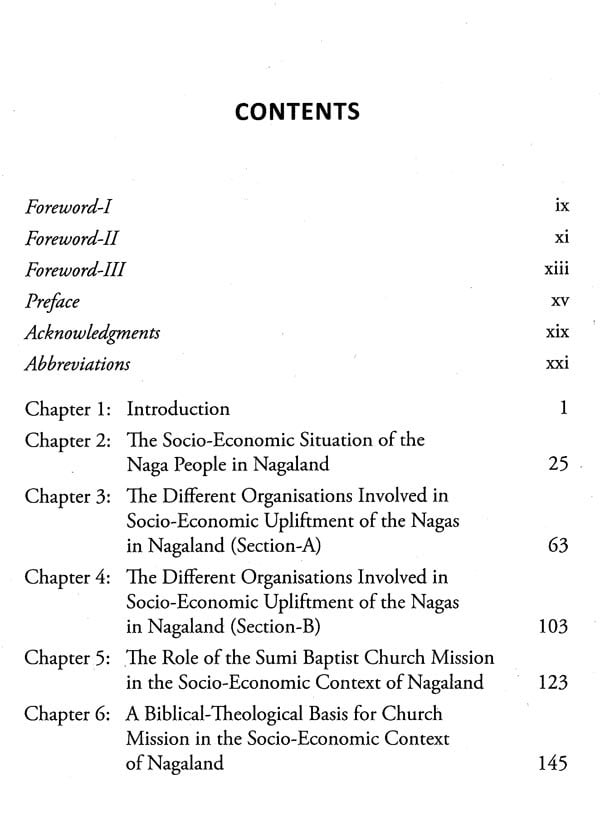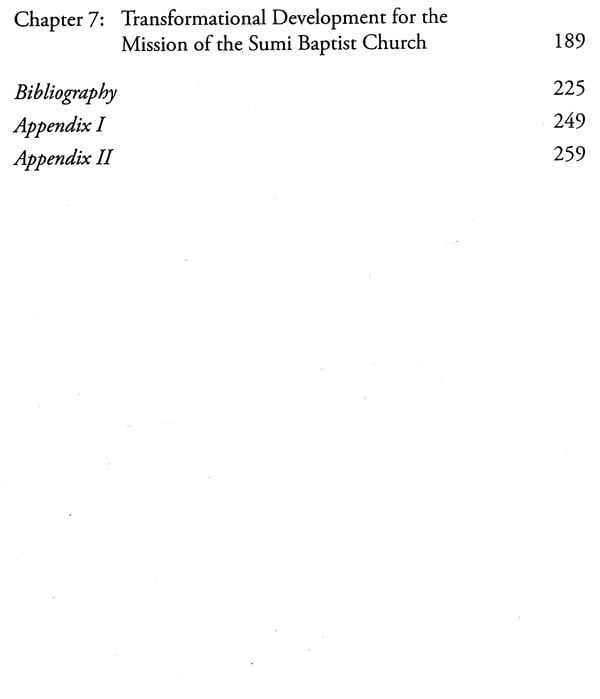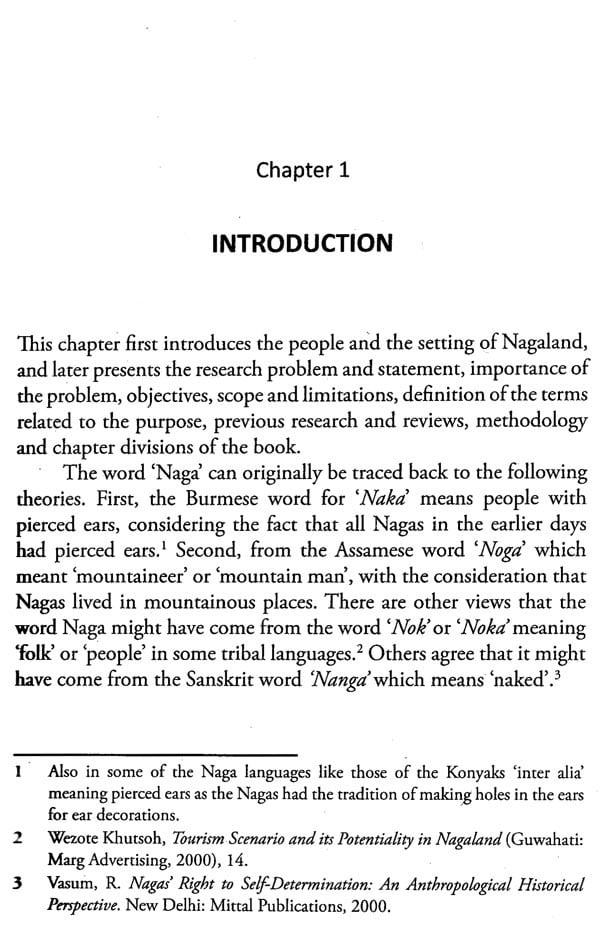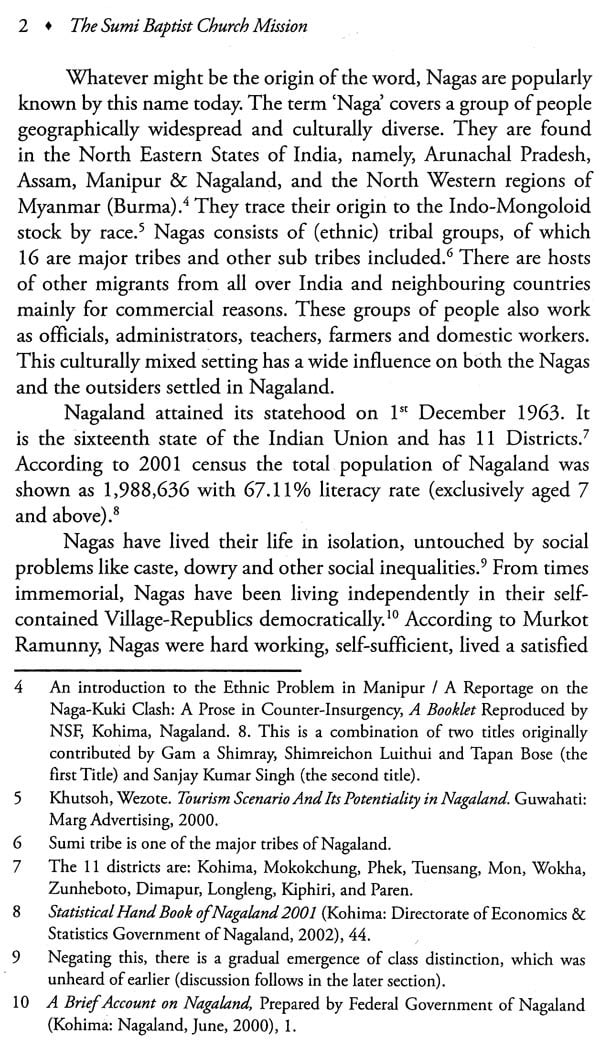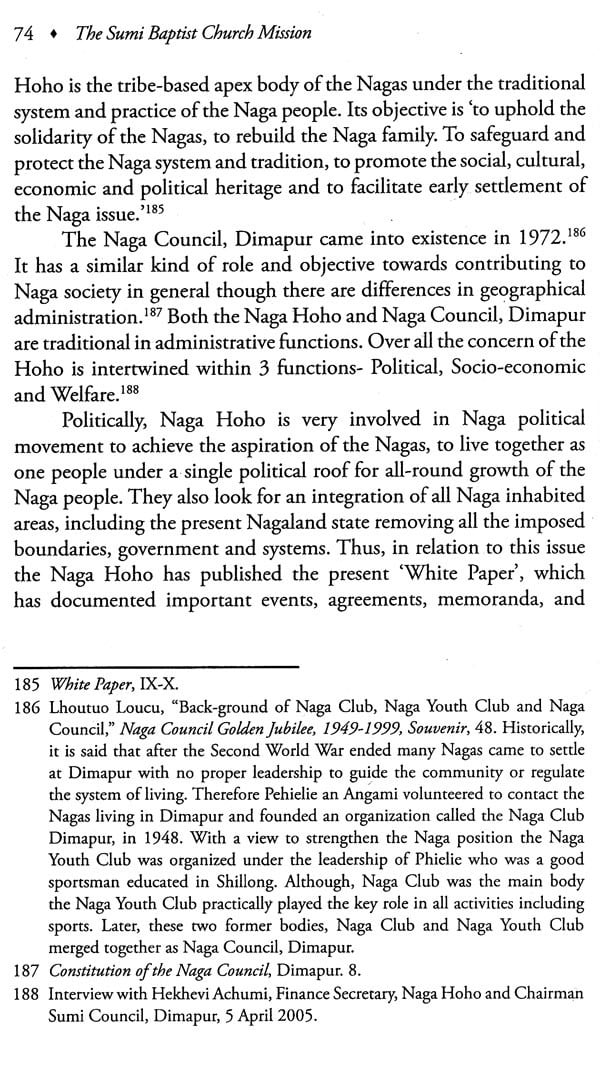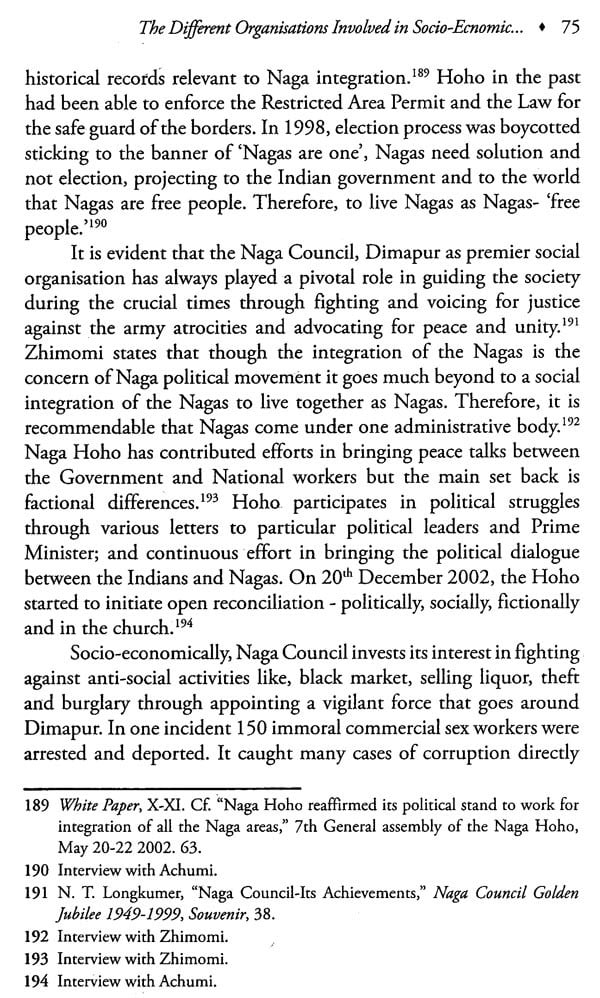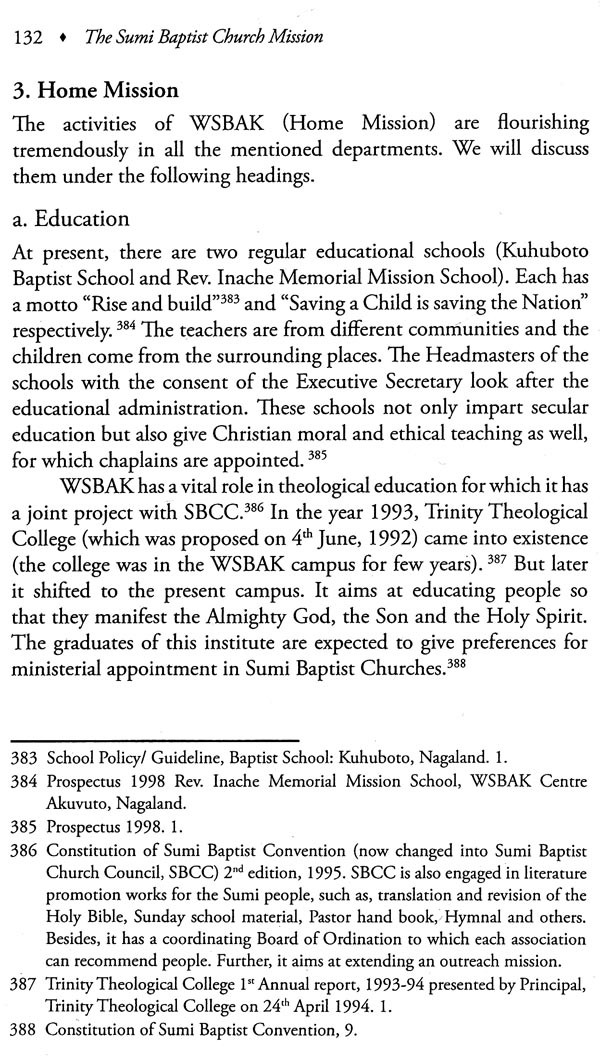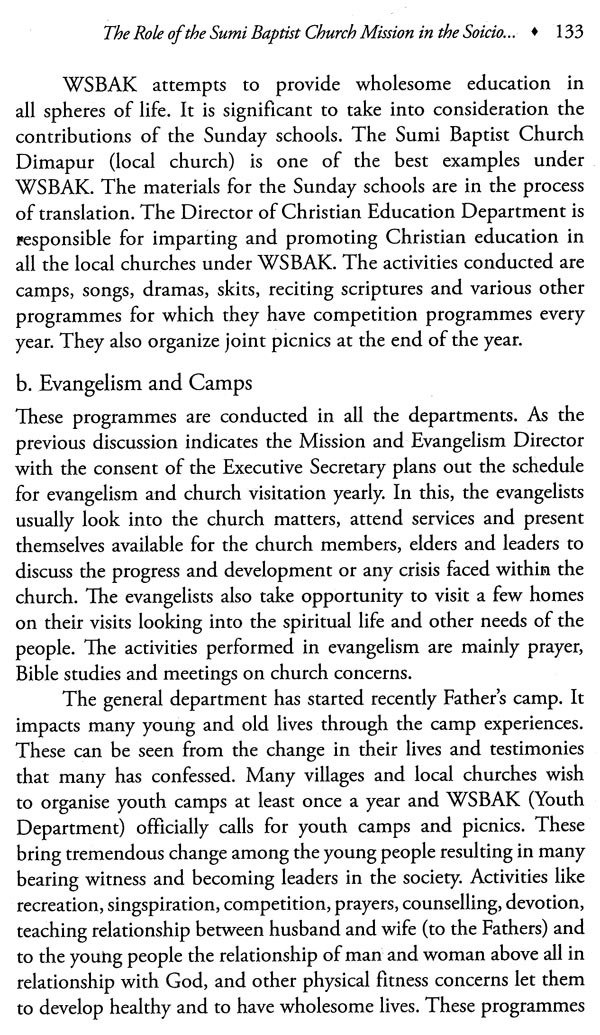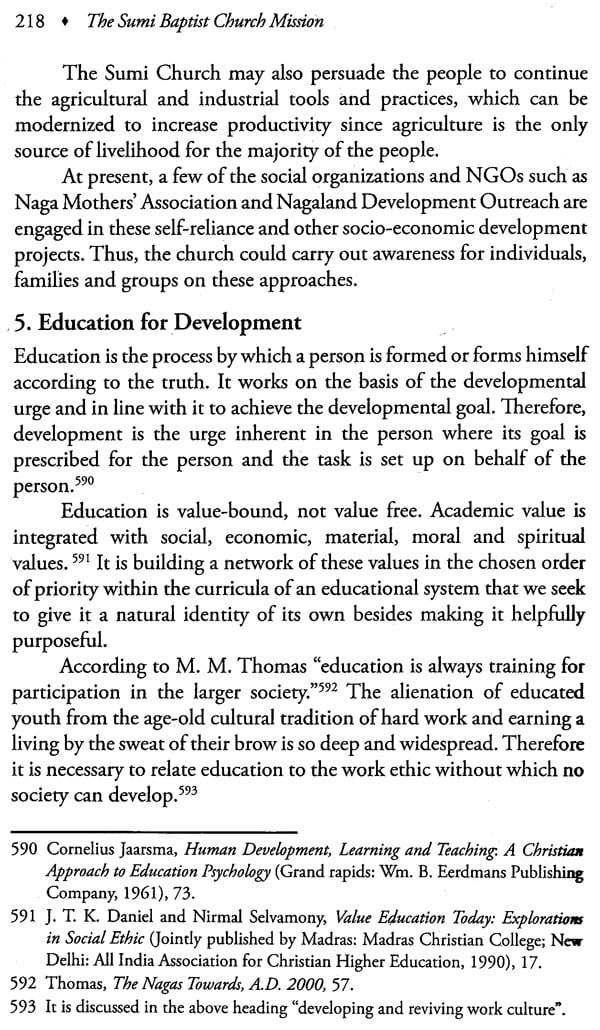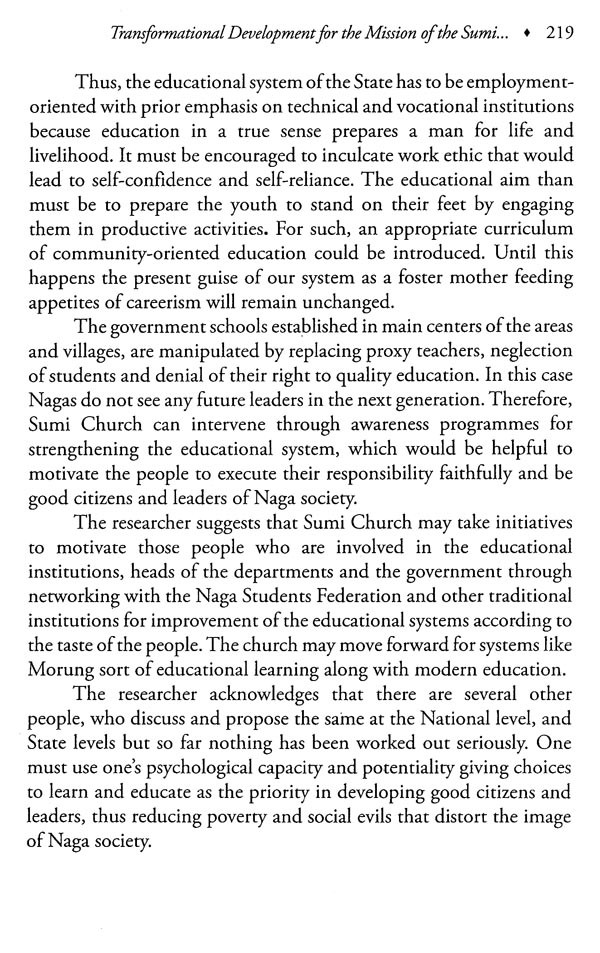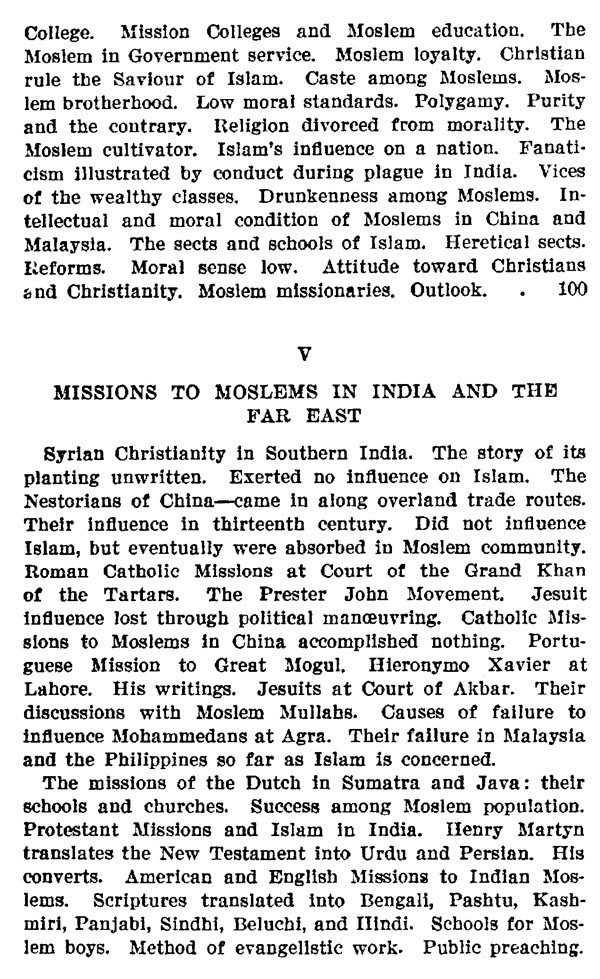
The Sumi Baptist Church Mission (Towards the Emerging Socio-Economic Context of Nagaland)
Book Specification
| Item Code: | UBA244 |
| Author: | Hetoni Swu |
| Publisher: | Christian World Imprints, Delhi |
| Language: | English |
| Edition: | 2016 |
| ISBN: | 9789351481157 |
| Pages: | 263 |
| Cover: | Hardcover |
| Other Details | 9.00 X 6.00 inch |
| Weight | 530 gm |
Book Description
This scholarly work recommends for transformational development that allows establishment of God's desire in human society and in the rest of the creation for total life. It addresses the challenges being faced by the Sumi Baptist Church in the of transformational development of the Naga society. The work is a treat for readers as it reconsiders four vital impediments in the quest of Naga Spirituality and their transformational development: Stewardship and socio-economic development, Justice in the midst of injustice and division among the Naga community, Liberative mission towards the oppressive socio-economic and political structures, Upholding kingdom community amid Naga society where the social and moral values are corrupted and spiritually bankrupt.
To eradicate the said impediments the author has provided well-researched suggestions like: Strengthening Naga traditional institution of customary laws and acts; Co- operative community development; Reviving community work culture; Human potential - Resource Educational development; and Job creation coupled with Project development.
The book is meant to fight against all the social odds that Nagas and society at large are facing. It paves the path for their transformational development so that in future the society can become a God's Intended Society.
She began her theological voyage by doing B.Th from Clark Theological College, Aolijen, Mokokchung; B.D from Bishop's College, Kolkatta; M.Th in Missiology from Serampore College, Serampore; and Ph.D under the Consortium from Indian Missiological Education (CIME), Bangalore. She had been on various positions at different renowned institutions and colleges. Since 2012, she is a teaching faculty at the Servanthood Bible College, Dimapur. She has also contributed numerous articles in various leading journals.
The discussion provides a critical analysis of the past and the recent developments of the socio-economic situation. The economy of the people, once subsistence with credibility of their work culture, is hardly noticed. The following are the observed findings: leadership, recognition, power, possessions, political differences, money, unemployment, underemployment, lack of resources and management for survival. In this situation, people aspire for social integrity, political freedom, economic progress, and development which lie far behind in reality.
The word 'Naga' can originally be traced back to the following theories. First, the Burmese word for 'Naka' means people with pierced ears, considering the fact that all Nagas in the earlier days. had pierced ears.' Second, from the Assamese word 'Noga' which meant 'mountaineer' or 'mountain man', with the consideration that Nagas lived in mountainous places.
**Contents and Sample Pages**
